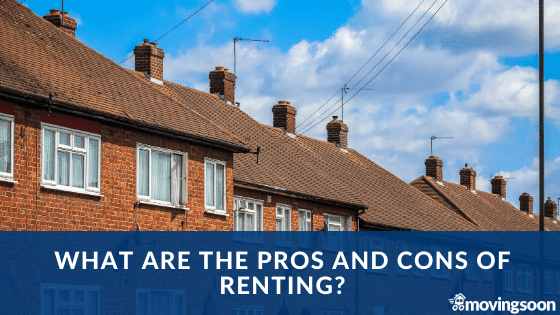So what are the pros and cons of renting a house? Renting is a popular choice amongst people who are wanting to move homes, as opposed to buying a home. Homeowners make up 65% of the UK housing market, with the percent shifting towards renting year on year.
VeriSmart have completed research that states that by 2039, renting will overtake home ownership as the most popular form of housing with 50.7% population in rental properties. Does this then therefore reinforce the idea of ‘generation rent’?
Table of Contents
As more people will be getting into the rental market, it seems appropriate for us to round up what we think the pros and cons of renting are;
What are the pros of renting a house?
There are many benefits to renting including;
You have more flexibility – One of the main benefits of renting is that you are not tied down in one area and if you are someone who likes to see new places and move around, then renting is perfect for you. If you are offered a brilliant job in a new city, you have the flexibility to be able to move there without the long winded process of trying to sell your house.
Landlord responsibility – Another benefit is that if any of the utilities, like a boiler break or need repairing, you are not responsible for this cost (unless you are at fault). If you were to buy a home and this happen, you would have to fork out hundreds of pounds to get it fixed.
Less upfront cost compared to buying a home – When you agree to rent a property there is little or no upfront cost. You don’t need to have saved up a large amount of cash for your deposit, therefore it is a lot easier to find a home and move in.
What are the cons of renting a house?
There will always be disadvantages where there are advantages as everyone’s preference and what they are looking for is different. The main disadvantages of renting could be seen as;
Your rent can change – As you are leasing a property from a housing provider, your rent can be subject to increases and decreases. You should make sure that you have the finances to be able to cope with these changes if they were to happen.
Instability – Your tenancy will at some point come to an end and the landlord/housing provider may not intend to carry you over on to the next lease. This can create instability as you could be constantly forced to move between different properties and start over each time.
Not paying off an asset – The money that you pay does not benefit you after you have paid your rent. This differs from the typical sale property as you are paying into a mortgage and so your money goes to paying that off. However, this is not a problem to some people as they do not want to be paying a mortgage as it is essentially a debt.
Tenant rules – You will have to follow rules as a tenant. These rules could be; restrictions on owning pets in the property, modifications of the property etc. This may be a deal breaker for some people as they may already have pets and so would not move without them .
Is renting a home right for you?
The decision between renting and buying is completely individual for each person. Renting offers flexibility if you are wanting to move around but in the same sense this could be seen as instability for those who want to stay rooted.
However, as studies suggest, renting could be the new norm for 50% of the population so start your search for properties to rent near you! Weigh your options up and consider what is best for you.


